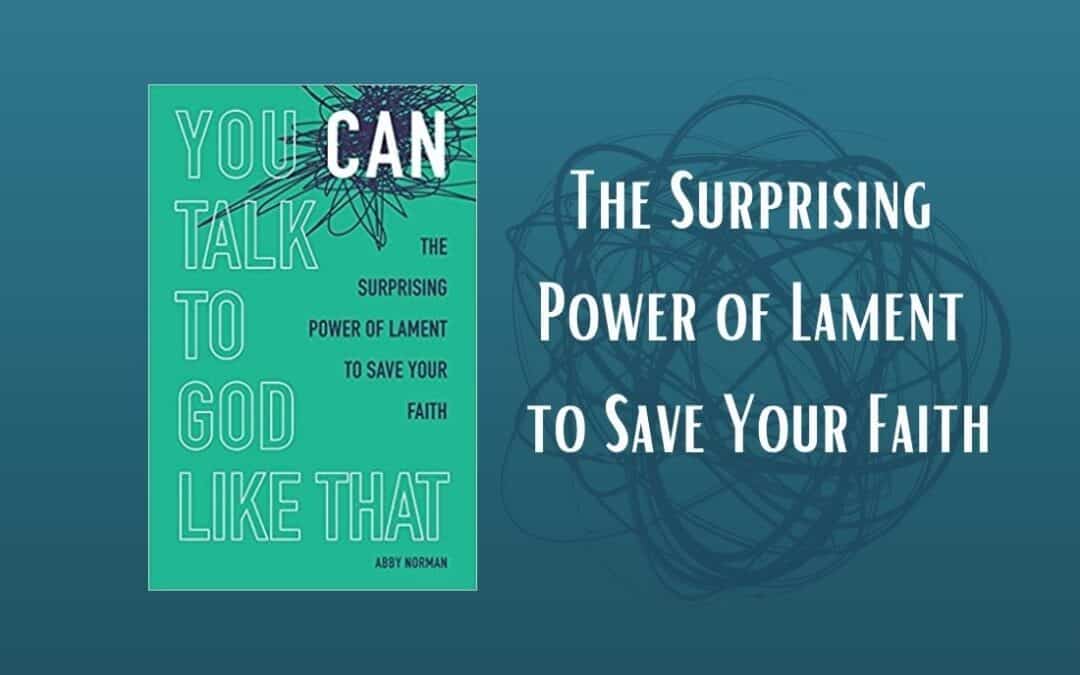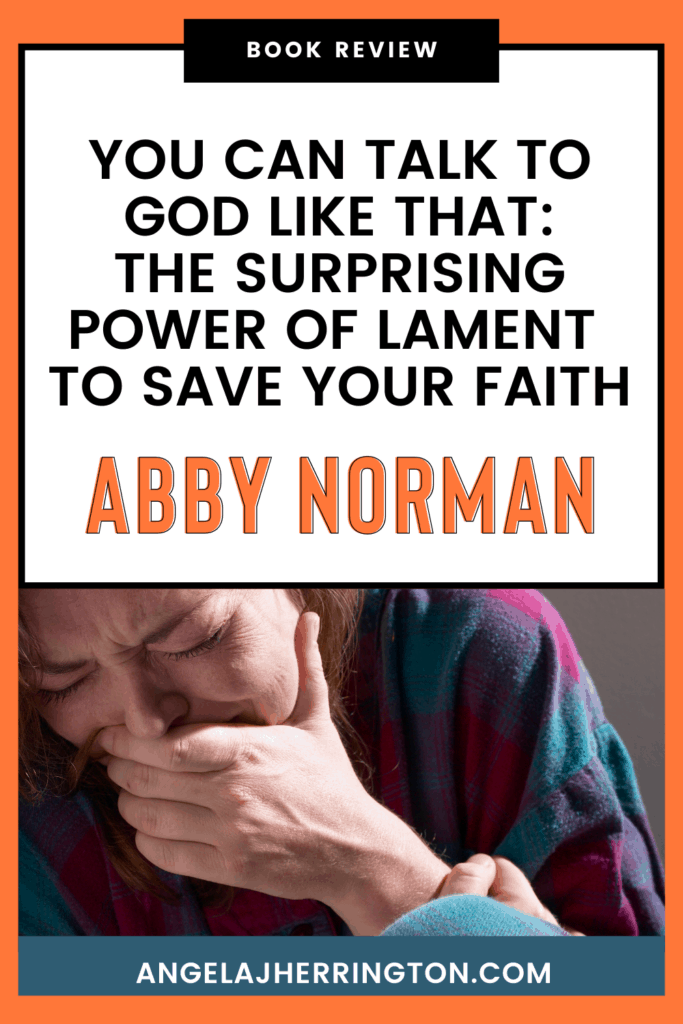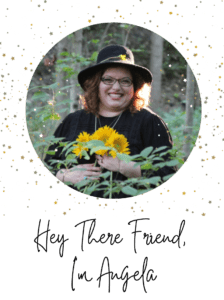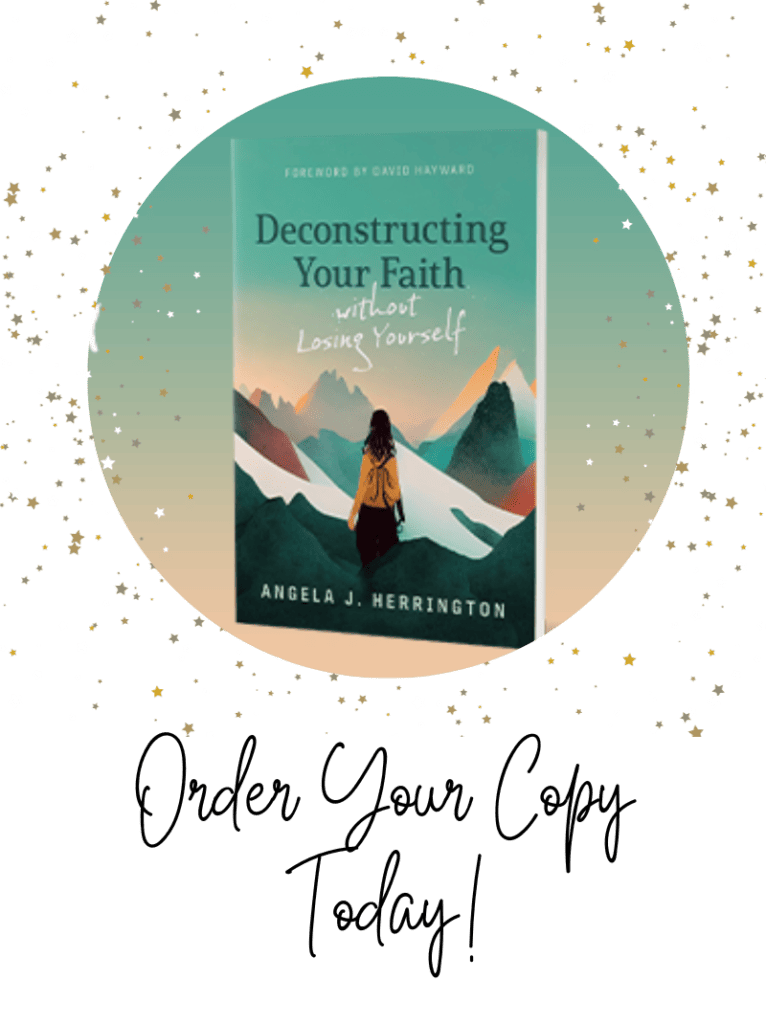Deconstructing your faith starts with lament. We MUST grieve the loss of what we thought we had, before we can clearly see what we need.
One of the things the church struggles with the most is grief. Toxic religion has mistakenly taught us to push down emotions because they sometimes make other people uncomfortable, but that’s not how it should be. The Bible is full of people who got mad, grieved, and full-on lamented the horrible things that were happening in their lives. There’s an entire book called Lamentations for Pete’s sake, but we still shame each other for feeling the deep pain and crying out to God.
It’s just not right for Christians to pretend that real people don’t have real pain that needs to be released.
Deconstructing your faith requires a LOT of work to start letting your emotions flow again. If, like most of us, no one ever taught you how to do it in a healthy way, it can be terrifying to just open the floodgates and see what comes out. I’m excited to share this book with you because I know that lament is ALWAYS part of untangling ourselves from toxic religion and patriarchal systems. As a faith deconstruction coach, I’m excited to add this book to my list of resources. I’m sure it will come in handy for myself and my clients!
Before we dive in, let me introduce you to pastor and author Abby Norman in case you haven’t met her yet!
Abby is a former teacher and current preacher living with her family in Atlanta. After nine years of teaching, she is pursuing ordination in the Methodist tradition. A blogger for the last seven years, Abby loves to write and talk about religion, sex, politics, and race. Through writing, she has figured out what the heck she believes and then changed her mind on some of it, all while finding that she is not alone.
In her new book, You Can Talk To God Like That: The Surprising Power of Lament To Save Your Faith, Abby shares how it’s not just okay to lament, it’s essential to both our individual and collective health as Christians. She moves through different biblical and personal experiences, including her own struggle with chronic illness in her teen years.
What I love most about this book is it’s an easy read that quickly makes the point without a ton of extra fluff.
(Because let’s be real, if we are reading a book about lament, we are probably up to our eyeballs in emotions and short and sweet is what we need. Am I right, or is that just me?) Particularly helpful are the six parts of a proper lament that she describes. Notice she said proper, not perfect. Abby is super clear that this isn’t just another list that pressures you to be perfect or act a certain way. It’s simply a guide to help us all understand what the pieces of a typical lament are so we can grab what we need in the moment and lament away!
This book is for anyone who is up to their eyeballs in grief and trauma and is struggling with dumping it out at God’s feet. It’s a great read whether you’re actively deconstructing your faith or if you’ve already moved through it.
Honestly, it’s a great book for people still caught up in the toxic church to read, but they may not be ready.
You can use this link to buy a copy for them anyway—let’s just stir up that hornet’s nest a little! <3 Also be sure to connect with Abby online and let her know how the book impacts you!
I always share a few favorite quotes from books I recommend, but buckle up because I have LOTS to show you this time! There were seriously SO MANY good quotes!
Here are my favorites:
- “I also learned how much bad theology can hurt those in the prison system.”
- “The Bible calls us to lament. It is not just that we can talk to God like that, but that we should.”
- “Unfortunately, many of us were never taught how to cry out to God.”
- “While it typically isn’t a part of our Christian tradition, lament is a huge part of the BIble.”
- “No one told me how to handle my anger in Sunday school.”
- “If we believe in an all-powerful, all-knowing God, doesn’t God know what we are thinking?”
- “Apparently, not everyone cries and uses the word bullshit when discussing their life predicaments.”
- “Somehow, we’ve decided that church is where everyone is supposed to be OK, fine, great!”
- “You cannot heal a wound you ignore.”
- “I long to be in a church that tells the truth about suffering and frustration right from the beginning.”
- “We don’t have to be grateful for our pain.”
- “Emotions like fear, anger, and sadness aren’t bad. They just are.”
- “Lament can help us fully embody that heartache and prepare to embrace the next season.”
- “Not dealing with our trauma has physical consequences that scientists have been able to measure.”
- “It turns out that feeling my feelings wasn’t a selfish act; it was a gift of freedom to those around me.”
- “In a society that tells us those with the least amount of problems are the holiest, the most blessed, it is so common for us to hide our sorrow.”
- “Even if the rest of the community refuses to see our pain, God sees it.”
- “I do not care how perfect you know God is in your head; we are going to be annoyed with God sometimes.”
- “God is big enough to handle our whole, unruly selves.”
- “Avoidance doesn’t mean that there is no conflict. It just means that someone is choosing to engage in the conflict by pretending it doesn’t exist.“
- “Christians who claim to be in relationship with God, but always insist they are fine lead to much larger dysfunctional patterns.”
- “The church’s inability to handle conflict keeps people from God.”
- “Lament births a community of real and whole people willing to show up for one another.
- “Communal lament is important. But it is hard.”
- “When it’s too hard to hope, it’s OK. Your community can hope for you.”
- “Lamenting in a community gives you more space to feel whatever we need to feel.”
- “We need to just sit, and be, and listen, if we are going to care for one another.”
- “People have been wrong in the name of Jesus, pretty much since the resurrection.”
- “It should matter to us a lot if our truth is clear.”
- “Our society completely scoffs at the idea of admitting fault.”
- “Sometimes the best way to understand our neighbors’ pain is to lament with them.”
- “People with privilege do not have the right to ask people who are being oppressed to understand us.”
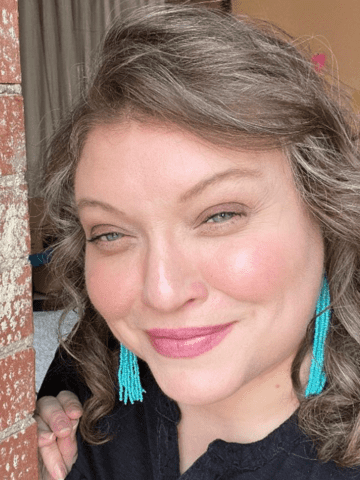
Angela is a Faith Deconstruction Coach and host of The Deconstructing Faith Summit who helps people break free from toxic religious culture & empowers them to recover from #churchhurt. She has led online ministries for a decade, enjoys working with clients 1:1, in groups, and is a dynamic conference speaker. She’s a Lark’s Song Certified Life Coach who reaches thousands of people in 40+ countries each month on Facebook, IG, Twitter, Pinterest, and her blog.
She’s a firstborn, Enneagram 8, Gen Xer who loves to question everything. She holds a BA from Indiana Wesleyan and a Masters in Leadership from Wesley Seminary. Her graduate research project focused on leadership development and opportunities for Gen X women in the US church.
Angela and her unique online ministry are featured in Lyz Lenz’s 2019 book God Land: Story of Faith, Loss, and Renewal in Middle America. She has published articles in Hope for Women and HOPE is Now magazines. She has been featured in The New Republic, Publisher’s Today, and Religion News Service.
Her first book, Deconstructing Your Faith Without Losing Yourself, Will be published by Eerdmans in February 2023.
Angela is also a wife, mom to 5, and a proud resident of Marion, Indiana with her family when they’re not traveling the US in their RV.

